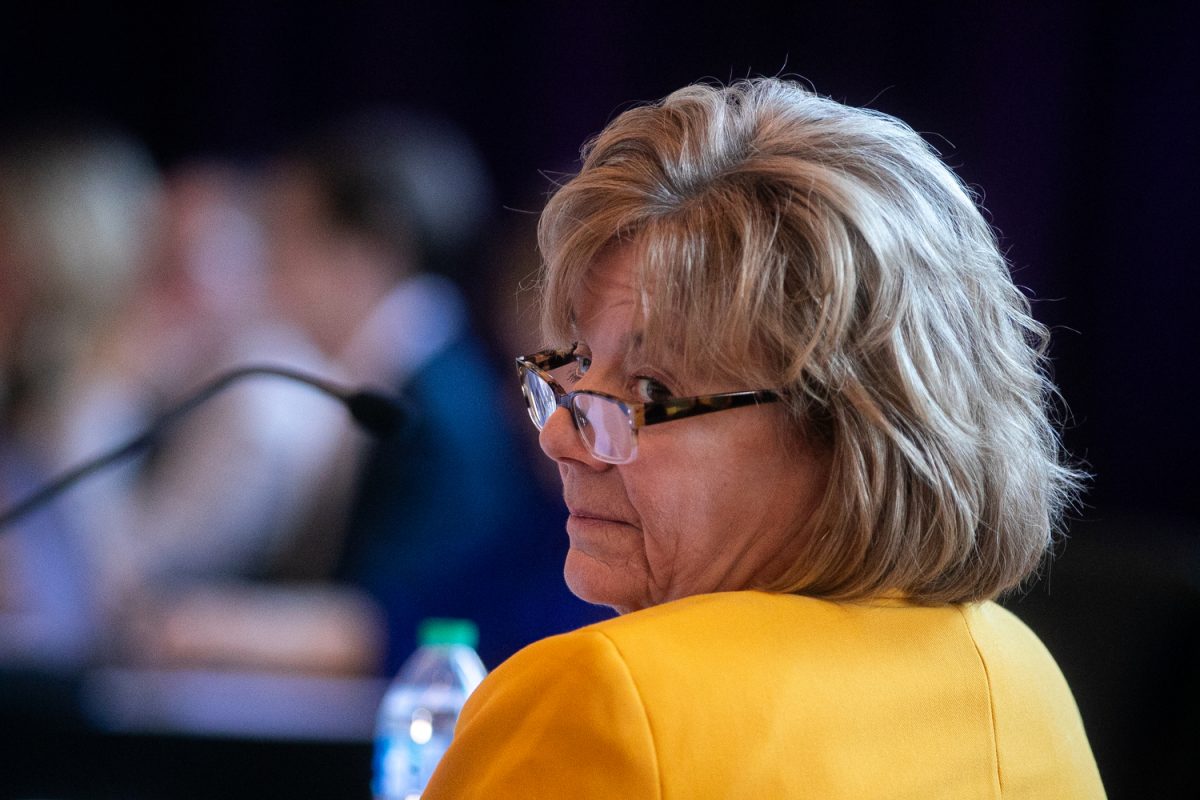Universities facing sexual-assault lawsuits may be reprimanded not only for how officials responded but also for how they failed to prevent alleged incidents.
Lawyers from at least seven Big Ten universities — not including the UI — sent representatives to the National Association of College and University Attorneys.
Held in Toronto, one discussion in particular addressed how schools should deal with such issues. Maureen McClain, a panel member and a lawyer with a San Francisco law firm, warned that institutions need to make sure that they have clear procedures in place for dealing with sexual assault and harassment investigations.
“[Policies] need to be as clear as possible and then need to be followed carefully,” she said.
UI attorneys did not attend because of budget constraints, said Carroll Reasoner, the UI interim vice president for Legal Affairs.
In recent years, the university has faced criticism over high-profile sexual-assault allegations against some former Hawkeye athletes, including Pierre Pierce, Cedric Everson, and Abe Satterfield.
Officials have learned their lesson, it seems. They revised the sexual-misconduct protocol most recently during the 2008-09 academic year. They are still reviewing the harassment policy, said Monique DiCarlo, UI sexual-misconduct-response coordinator.
The creation of DiCarlo’s position itself came as part of the revamping. In 2008, DiCarlo was the interim sexual misconduct coordinator. Last week, she took it on as a full-time job, making the UI one of few universities in the country with such a position.
At the national conference, the three-member legal panel advised officials to check protocols each year. DiCarlo agreed that the procedures need revisiting, but she said regulations may not need major adjustments with each review.
“It doesn’t mean completely redoing the system all the time, but listening to people who are using the policies to hear their concerns and make parts clearer,” she said.
Presenters at the conference said judges nationwide may be adopting a broader standard in decisions involving lawsuits under Title IX of the Education Amendments of 1972, the federal law that protects sex equity in education.
Discussion at the convention covered mainly lawsuits involving students who say they were sexually assaulted by peers.
Sexual-harassment lawsuits are not uncommon, but few students have won such cases because of a legal test instated by the U.S. Supreme Court. For example, an institution cannot be held liable unless an official knew of the harassment, had authority over the alleged suspect, and was “deliberately indifferent” — meaning he or she didn’t take action to stop or remedy the misconduct.
Before 2006, schools or colleges could have passed those standards by investigating or punishing the alleged perpetrator after the incidents occurred. Judges have increasingly held colleges liable for failing to prevent these crimes.
Several major institutions have found themselves subject to the trend, including one case at the University of Georgia in 2002 and another against the University of Colorado in 2007.
The good news, McClain said, is the trend may fade if universities take time to create clear policies and inform students about them. University officials should also train faculty and staff members in how to respond to student allegations of sexual assault, she said.






